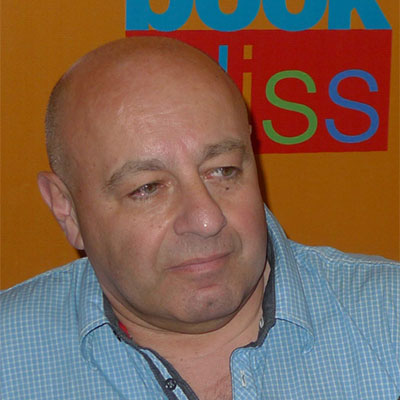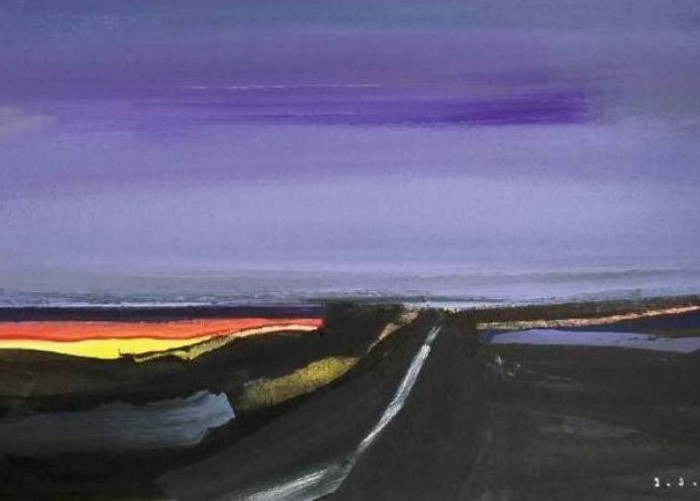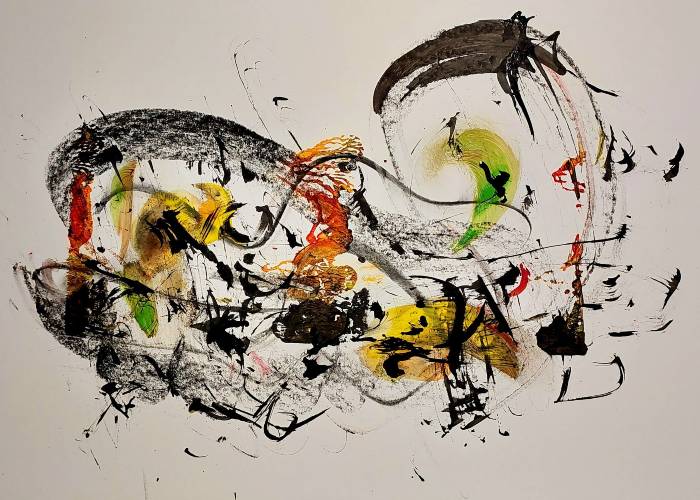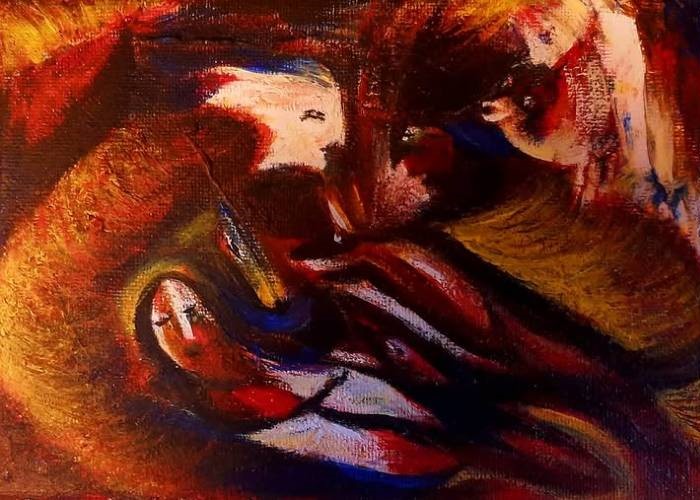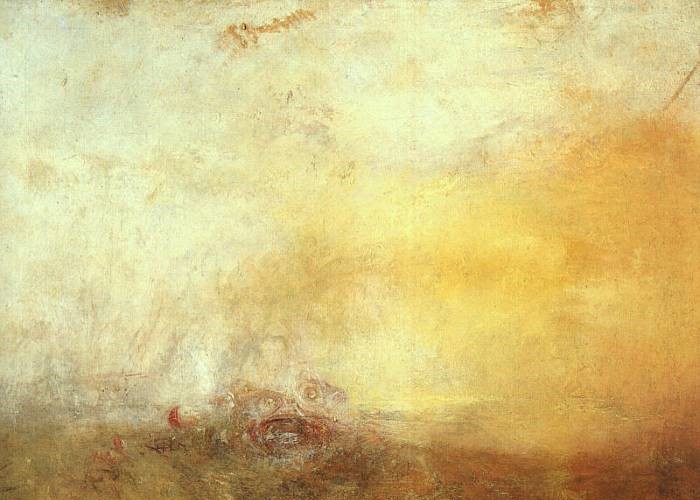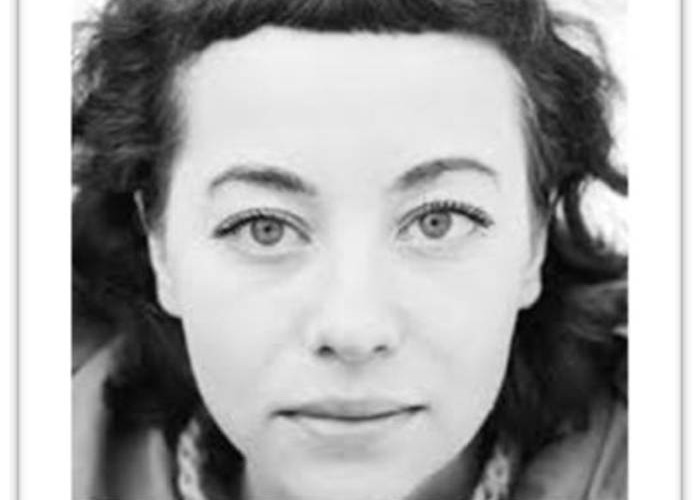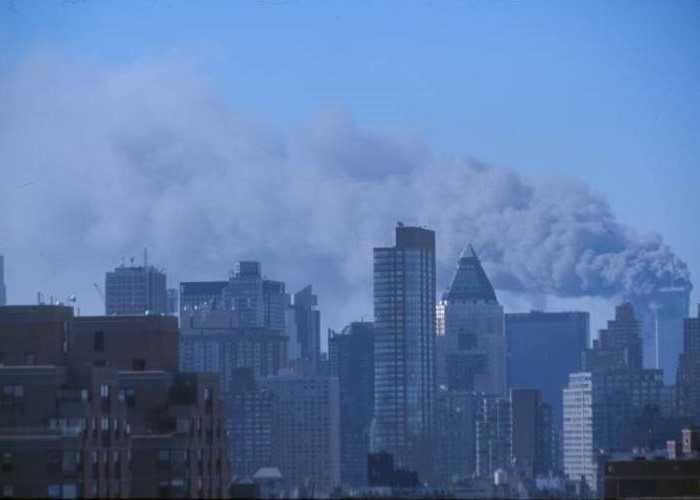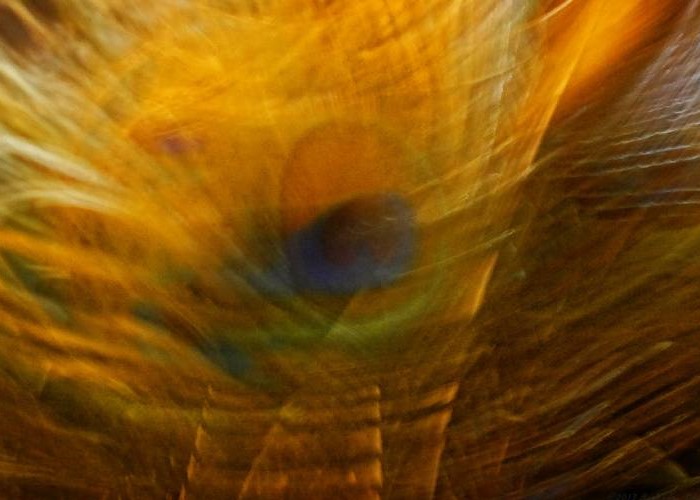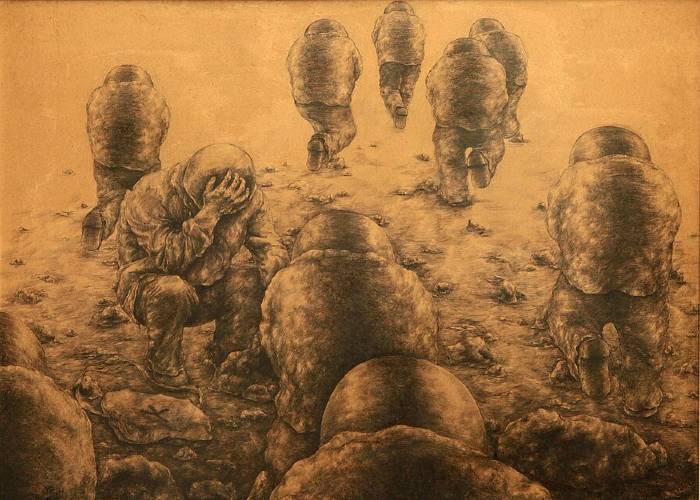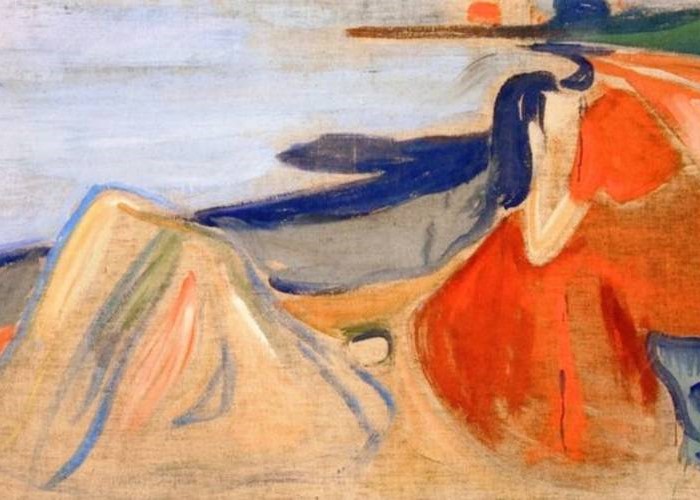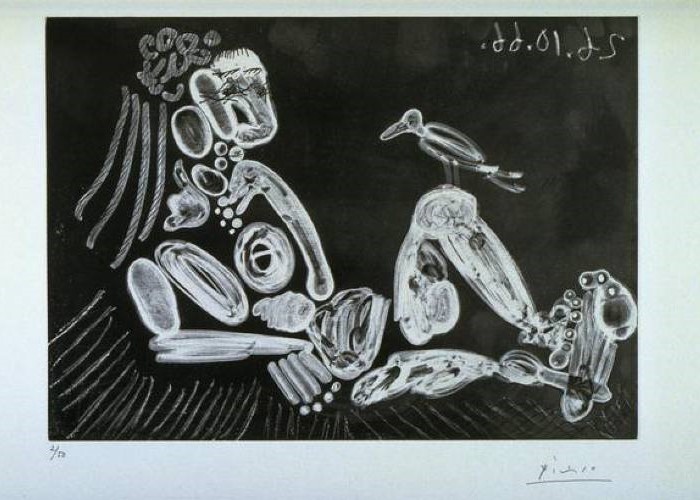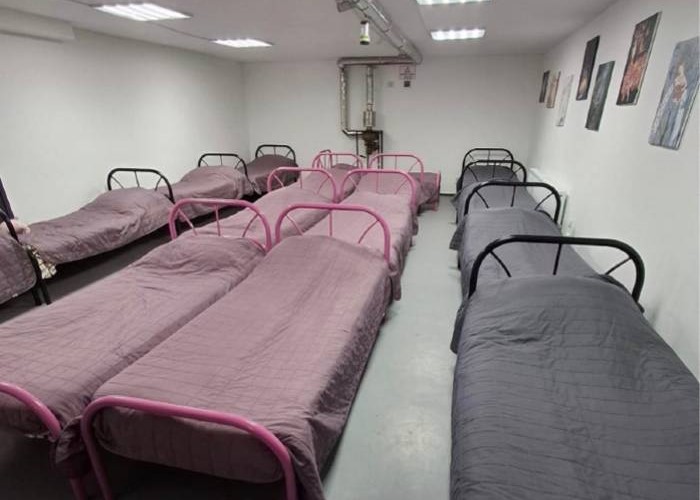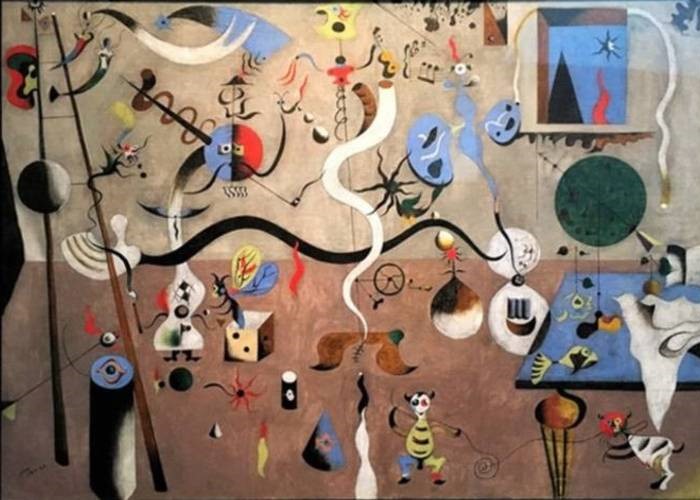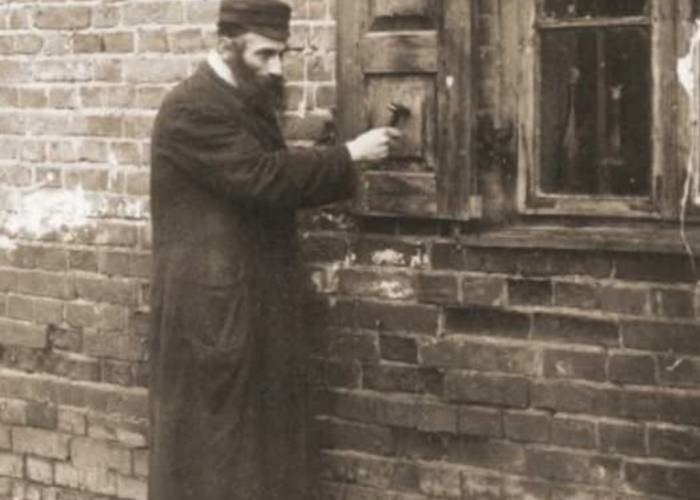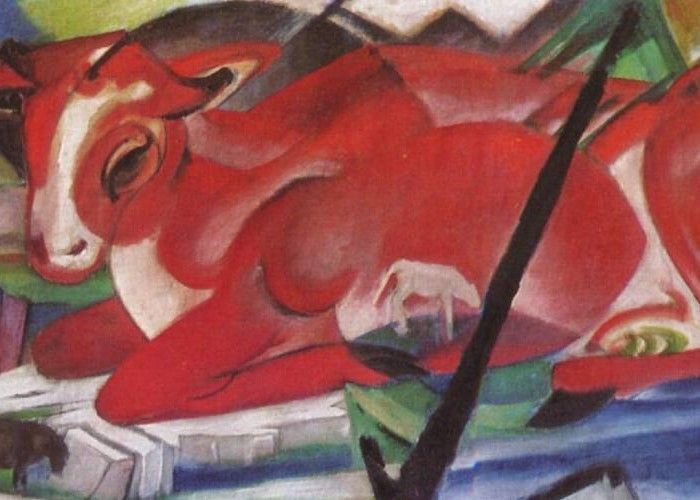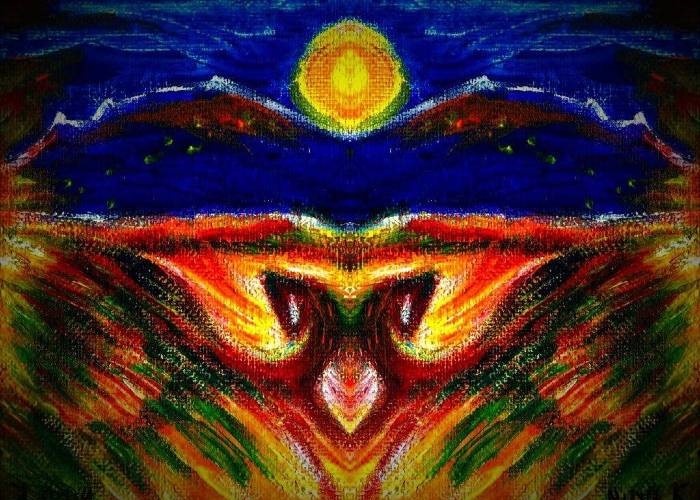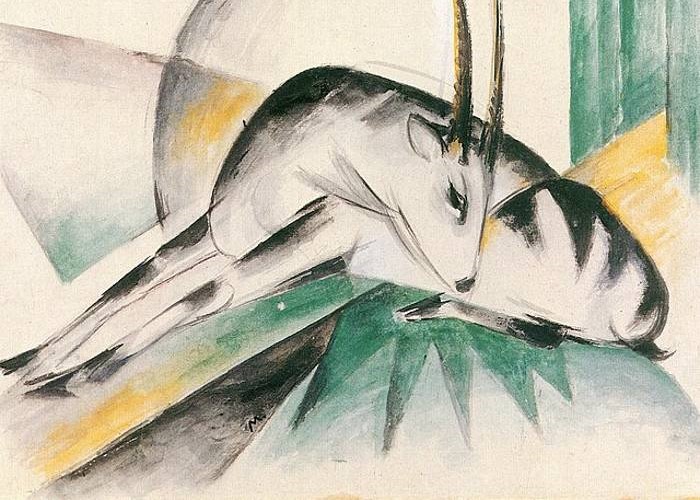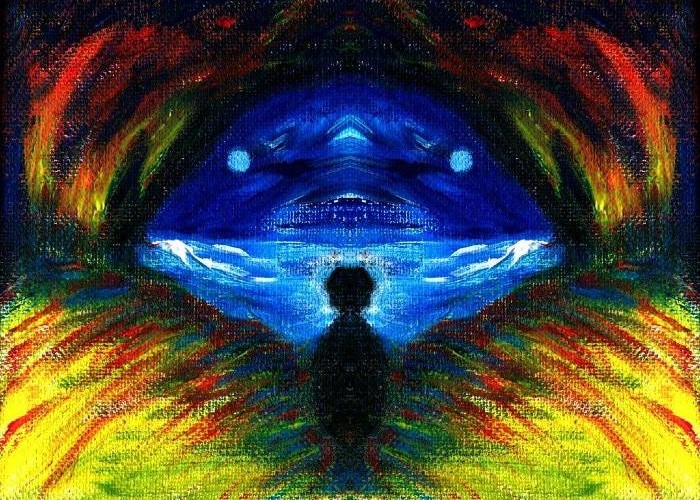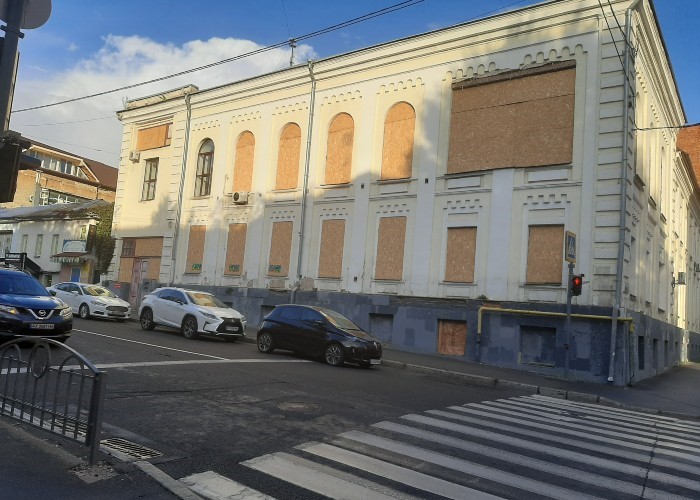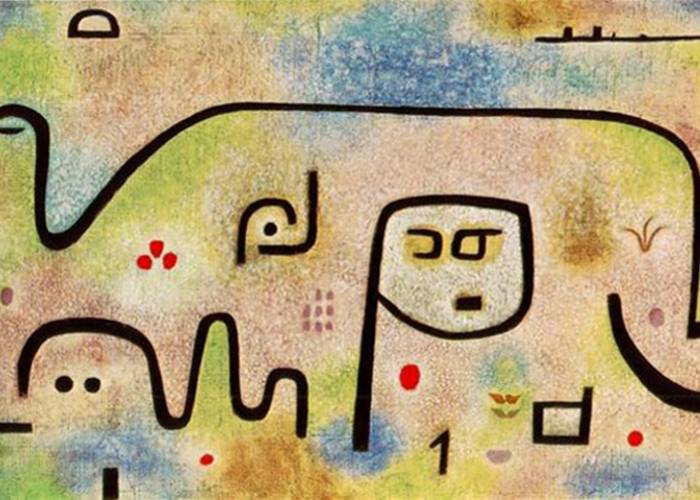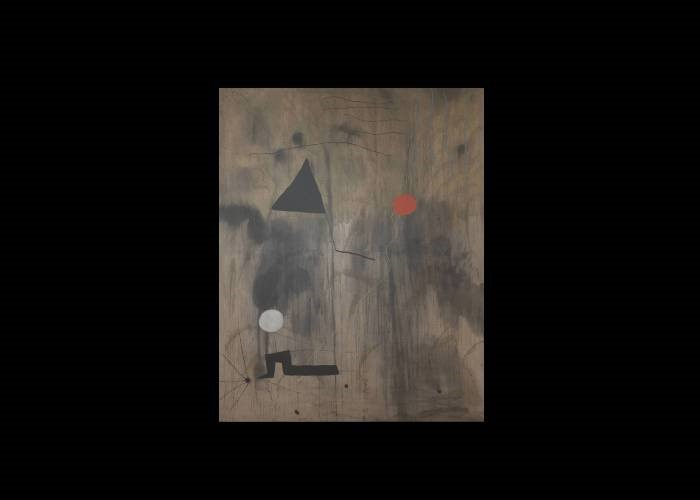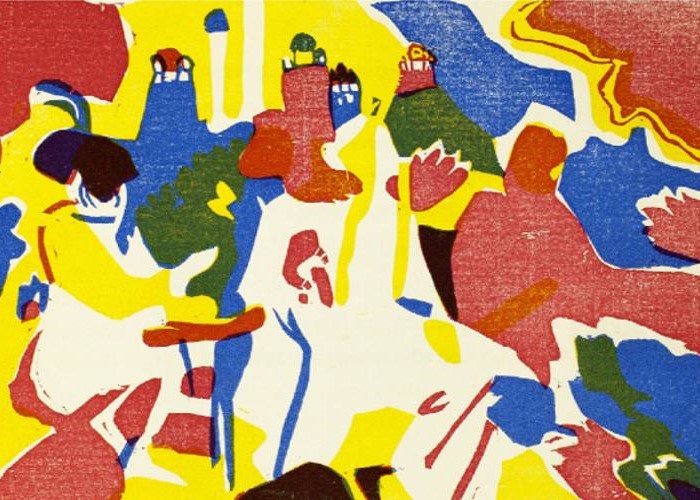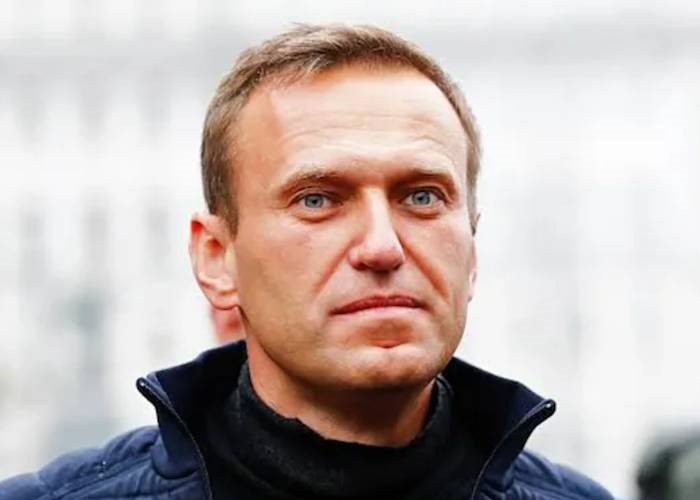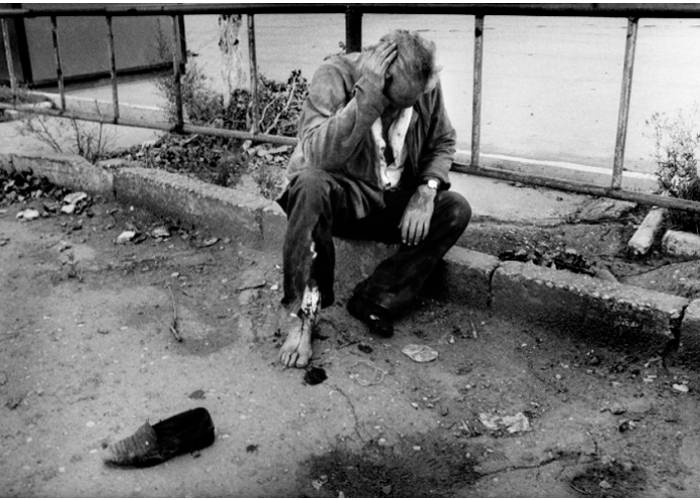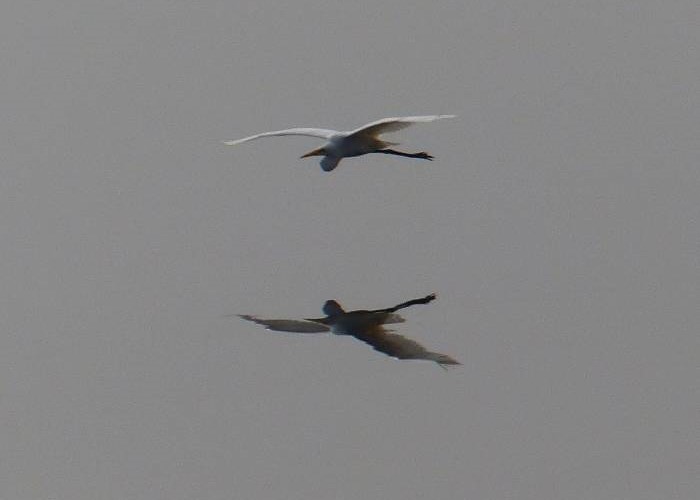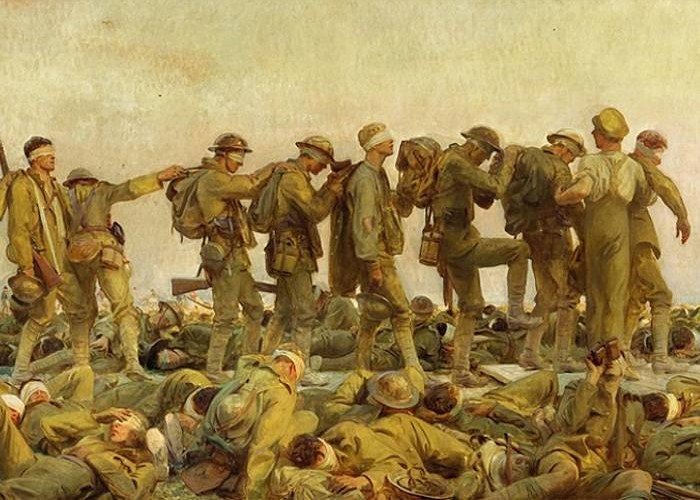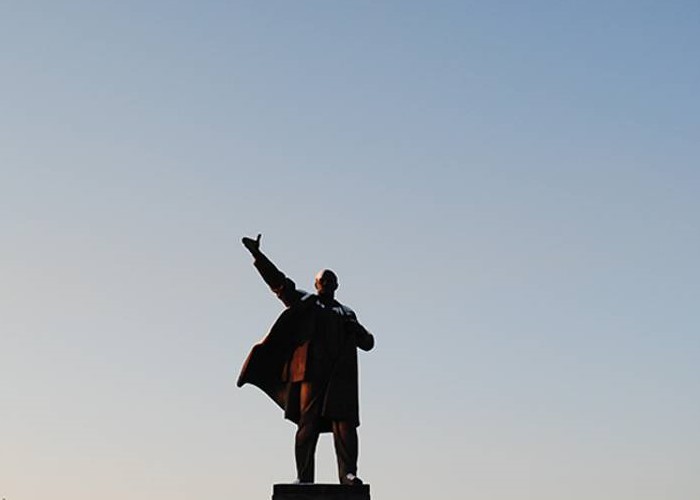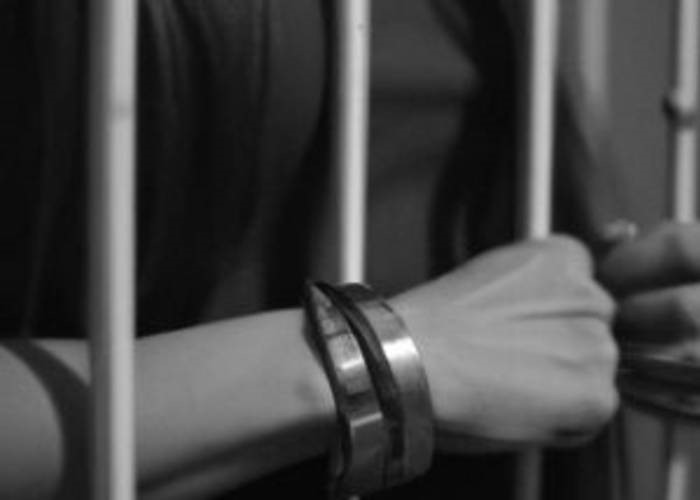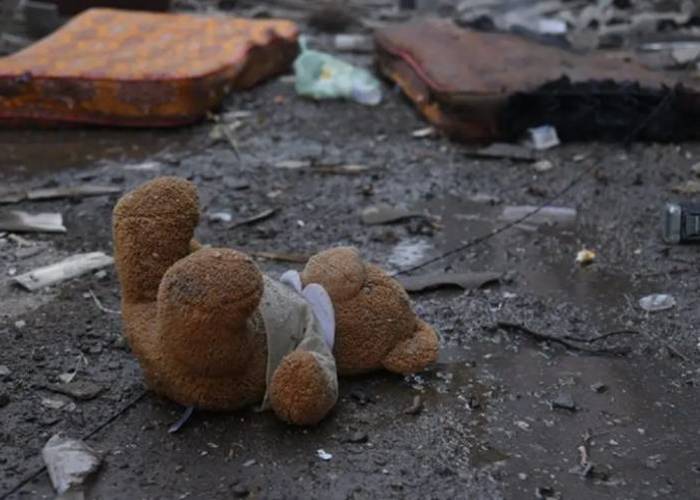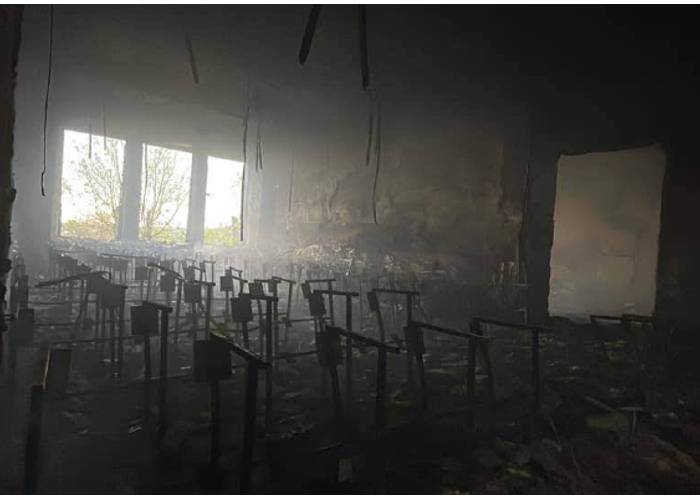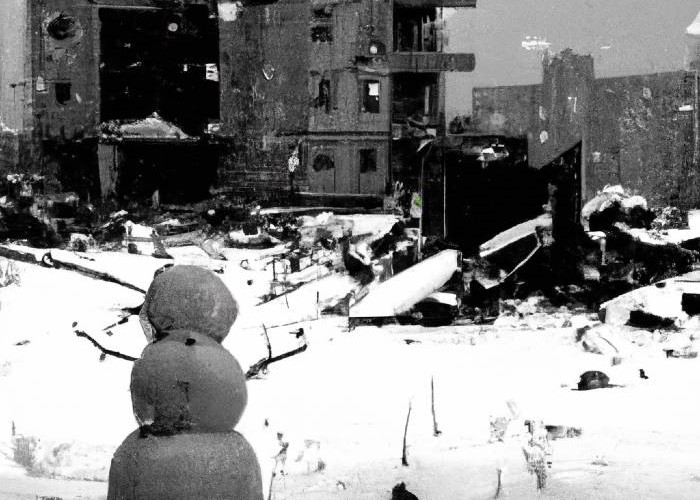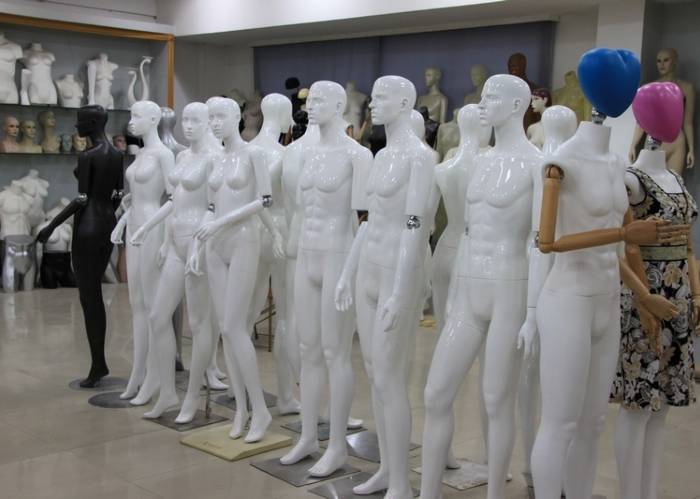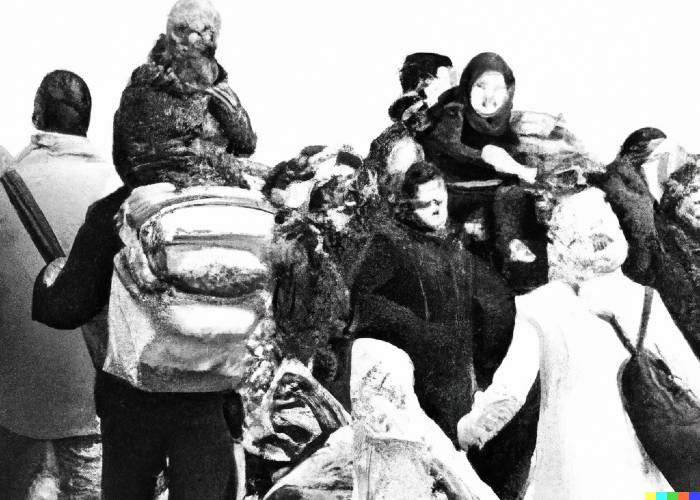a lone parrot roams through an apartment with nothing to do,
knowing nothing about the invasion, he sulks on a shelf
as he clicks his beak, warbles a song of a wife who’s untrue,
and chirps “polly!” to beat the band, vainly announcing himself
with one talon curled into a small fist, he fluffs his crest up
and chants “feed me!” in octaves from baritone up to soprano;
he makes comments galore (trilling “good boy!” or squawking “you chump!”)
in response to himself quoting plato’s republic at random
he shrieks “help!” – and for good measure, tries out ukrainian “pri-veet!”*
in homage to the neighbor boys who always greeted him smiling;
hour by hour, the window still shows the same view of the street…
day by day, march drags on – the apartment grows more and more silent
people might say, “a parrot?! get over it – don’t be absurd!
we’ve got so many corpses in buildings and out in the road,
there’s so many folks wounded and crippled, wherever you go!
there are millions of refugees, and you’re hung up on some bird?!”
and god knows they’re right… yet even so, even so, even so
*Informal greeting, equivalent to “Hi!”
The Original
попугай, из покинутых в доме, не знал о войне,
он бродил по квартире, сидел, пригорюнясь, на полке,
громко цокал и пел нараспев о неверной жене,
и томился, дурак, представляясь со щёлканьем: «попка!»
он сжимал в кулачок свою лапку и, взбив хохолок,
«есть давай!» повторял то сопрано, а то баритоном, –
комментируя («умница!», либо язвительно «лох!»),
если кратко цитировал из «государства» платона
он кричал «караул!», мог и по-украински «привiт!»,
имитацией славя любимых соседских мальчишек:
час на час походил, из окна тот же мартовский вид…
день за днём становилось в квартире всё тише и тише
кто-то скажет: опомнись, какой попугай, ты о чём?!
столько мёртвых в домах и на улицах мёртвых прохожих,
столько раненых и покалеченных всюду, о боже!
о каком попугае? а беженцев ты не учёл?!
это – сущая правда, но всё же, но всё же, но всё же
* * *
to an unknown resident of Bucha
who was killed by Russian liberators
there’s a guy who goes out for a ride on his bike one fine day,
and he’s mapped out a route for the plans that he wants to fulfill;
he’s not usually wearing a safety belt strapped to the frame,
and he has no idea that this oversight could get him killed
on his way to the store, it’s so quiet you’d hear a pin drop,
he grips tight on the bars – he’s not deaf, but he tends to keep mute,
plus he’s wearing a helmet by law, so he shouldn’t get stopped,
much less caught in somebody’s crosshairs as a target to shoot
As he pedals, he hums a song under his breath, keeping time,
he remembers riding around here before there was war,
and he runs random thoughts through his head, maybe making them rhyme,
but he shouldn’t be killed for such things, that’s for sure
like odysseus (haha), he’s got somebody waiting at home –
like a wife and kids… maybe his mom has cooked up a big meal;
for a moment he thinks, “look, i know there’s a war going on,
but why point a machine gun at people? that can’t be for real!”
now a ray of sun glints off a spoke, strikes him straight in the eye,
and right after the shot, something gives out – oh crap, it’s the brakes!
this must mean he broke some regulation, he didn’t comply,
and that’s why he got targeted fire blown into his brains…
In the lingo of crooks, the word “snowdrops” means dead bodies dumped
under drifts in the winter: late march was the last frost we had
and in april, as soon as it started to thaw, they sprung up
in the sun-spattered ditches with dragonflies circling their heads
The Original
неизвестному жителю Бучи,
убитому российскими освободителями
человек налегке выезжает куда-нибудь днём,
у него в голове масса дел, оттого свой маршрут;
не пристегнут он к велосипеду обычно ремнём,
и не знает, что, может, за это его убьют
держит руль, он не пьян и не глух, но привычно нем,
а вокруг, по дороге к сельпо, вроде тишь да гладь,
да по правилам строгим на нём безопасности шлем,
так что вряд ли за это будут в него стрелять
он педали вращает и песню под нос свистит,
вспоминает, как ездил, бывало, здесь до войны,
он слагает случайные мысли, возможно, в стих,
но ведь точно за это убить не должны
ждут его, ха-ха-ха, одиссея!, с детьми жена
или после поездки – на кухне с обедом мать:
«понимаю, – успел он подумать, – идёт война,
но зачем без причин на людей наставлять автомат?»
блик от солнца сорвался со спицы, ударив в зрачок,
после выстрела вмиг отказали, вот чёрт!, тормоза –
видно, что-то такое нарушил, всего не учёл,
оттого и прицельным огнём получил по мозгам…
блатари называют «подснежником» спрятанный труп
под наваленным снегом: закончился в марте мороз
и в апреле, едва потеплело, взошли поутру
на припёках они в окружении мух и стрекоз
* * *
an age of horror: danger zones and rubble,
where each dead line of verse lies like a stone.
somebody should have sent a note to abel
to tell him what the wrath of cain had sown.
let’s gather stones for all those storied souls:
bezukhov in his laughable white hat,
three sisters with their orchard still not sold,
onegin, who just can’t clean up his act
in twenty years or so, if we’re alive,
we’ll hear some young guy suddenly remember:
“there was a house once where we used to live,
a russian tank shell blasted it, dead center”
it’s not a horror film or nightmare on
halloween – this is actual life unfolding:
Family Runs From Occupied Kherson,
Evades Artillery Fire, Flees to Poland
i write these lines and stare in disbelief
as maps swell up with blood, the news grows darker:
today the russian troops advanced on kiev!
today the russians bombed a school in kharkiv!
imagine pushkin, tolstoy, dostoyevsky
and chekhov meeting in the world on high
the children from ukraine who died grotesquely:
how can they bear to look them in the eye?
The Original
ужасный век: повсюду зона риска,
где каждый мёртвый стих лежит, как камень;
похоже, время авелю записку
послать, чтоб он узнал, чем страшен каин
пора, похоже, собирать всем камни:
безухову в нелепой шляпе белой,
трём сёстрам, не продавшим сад покаместь,
онегину, не занятому делом
лет через двадцать, если будем живы,
какой-то хлопец скажет, между прочим:
«я помню дом, мы в нём когда-то жили,
бил русский танк в него, прицельно точный»
не жуткий хоррор, не кошмарный сон на
хэллоуин – реальность, факт, не больше:
«ИЗ ОККУПИРОВАННОГО ХЕРСОНА
СЕМЬЯ ЭВАКУИРОВАЛАСЬ В ПОЛЬШУ»
пока веду слова к концу строки, я
гляжу, как набухают кровью карты:
сегодня русские прорвались в киев!
сегодня русские бомбили харьков!
и не представить, как идут с повинной
на свете том, где свет сегодня резкий,
встречать детей погибших с украины
толстой и пушкин, чехов с достоевским
